
Pictures of back Exercises
 Talk to your doctor. Always talk to your doctor prior to making any changes to a workout or starting a new workout. This is especially important if you're recovering from an injury or have had a history of a back injury.
Talk to your doctor. Always talk to your doctor prior to making any changes to a workout or starting a new workout. This is especially important if you're recovering from an injury or have had a history of a back injury.
- Always get clearance from your doctor before starting to work your back. Ask her when you can start exercise, what type of exercise, what resistance weight and if there are any other restrictions.
- Also ask her what types of pain are to be expected. Some generalized muscle soreness is typical and usually doesn't signify you've injured your back. However, more acute pain or pain similar to a past injury should signify you need to stop exercising and call your doctor immediately.
- Consider talking with a personal trainer, exercise specialist or a staff member from your local gym.
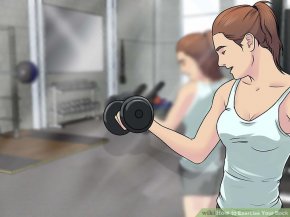 They'll be able to tell you how to do exercises, use the machines and have correct form throughout your exercise workout.
They'll be able to tell you how to do exercises, use the machines and have correct form throughout your exercise workout. - Try doing some of your exercises in front of a mirror. Watch yourself as you perform the move. Make sure you're using correct form and make any changes to your form as necessary.
- More than one muscle group assists or aids your back muscles in a variety of activities. Since your back muscles are smaller compared to others (like legs), it's the union of two muscle groups that helps make you stronger.
- Focus on also strengthening your core, pelvis and hips. Many movements require the use of all of these muscles groups.
- Also work your legs.
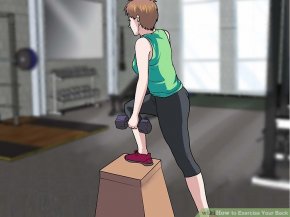 Whenever you're lifting (either at the gym or at work), you need to use mostly your legs with the addition of some back muscles to effectively and safely lift objects.
Whenever you're lifting (either at the gym or at work), you need to use mostly your legs with the addition of some back muscles to effectively and safely lift objects.
- It's important to stretch warm muscles. Do a light warm up and then do your pre-workout stretch. Also stretch your entire body, not just your back.
- Do a 90/90 neutral back stretch. This will help open up the muscles in your back, readying them for your workout. The stretch will also help your chest muscles open up and reduce tension in muscles and ligaments overall.
- You might also like to consider a thoracic stretch. Place the back of a chair facing you to serve as a stable support. Stand behind this, placing your feet shoulder-width apart and bend your knees slightly. Push back through your backside; you should feel a stretch along your upper back. Hold for a count of 10, then move back up gently.
- Another thoracic stretch: Sit on a chair and place your feet flat on the ground. Roll your upper body slowly forward from the waist. Place your hands beneath your legs and grip the chair legs. Then curl back up slowly.
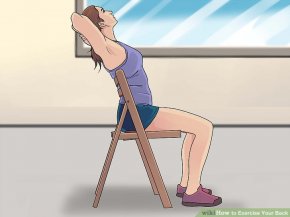
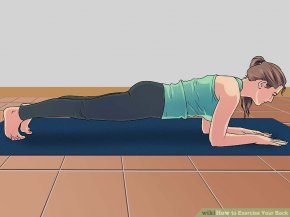
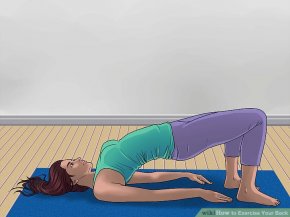
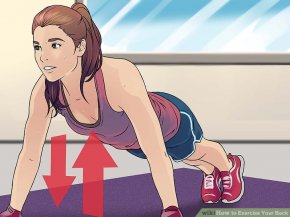
Source: www.wikihow.com









